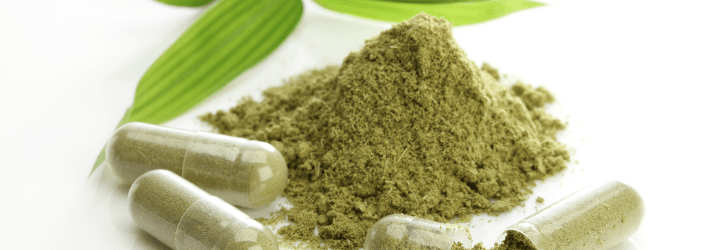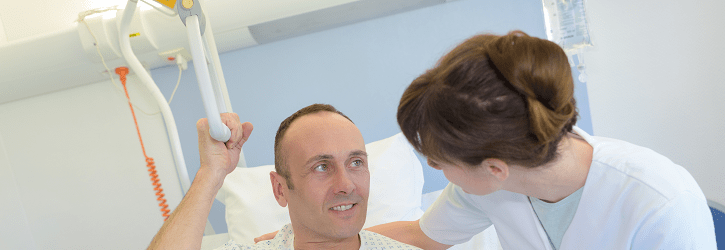Category: Medical

Thousands of patients sue 3M for allegedly causing infections
Over 4,000 patients reportedly contracted serious infections after using 3M’s warm air blower blanket post-operation that has allegedly deposited infectious bacteria into their incisions.
Most of the patients reportedly underwent joint surgery and used the blanket to keep warm during the procedure. The deep-joint infections have reportedly caused septic arthritis in some cases. The inflammation of a joint through infection can be very painful and cause swelling, requiring treatment with anti-biotics.
Continue Reading…
Rivaroxaban recalled over rogue blister strips of reduced strength tablets
The Medicines and Healthcare Products Regulatory Authority (MHRA) has announced a recall over Xarelto 20mg film-coated tablets made by Strathclyde Pharmaceuticals Ltd. Better known as Rivaroxaban, the tablets are packaged into blister strips with the weight labelled on one side.
A batch is reportedly affected by the recall following reports of rogue blister strips carrying 15mg tablets finding their way into the twin pack 20mg tablets.
The batch number in question is BXHHDR1, due to expire in September 2019. The 28-tablet packets were reportedly first distributed on 18th September 2017.
Continue Reading…

MHRA issues warning for Gentamicin Sulphate Active Pharmaceutical Ingredient over increased levels of histamine
The Medicines and Healthcare products Regulatory Agency (MHRA) has issued an alert over batches of Gentamicin Sulphate Active Pharmaceutical Ingredient (API) for trace contamination of histamine.
The situation is reportedly not serious enough to warrant a recall.
Gentamicin is a bactericidal used an as active ingredient for antibiotics. The MHRA was made aware that testing of the finished products has uncovered higher levels of histamine than expected. The unwanted histamine is thought to be a residual from the manufacturing process, with the potentially affected range between July 2014 and June 2017.
Continue Reading…
Servier to face French Courts over deaths reportedly linked to diet pill
Pharmaceutical drug maker Servier are set to be facing French prosecutors in Court over hundreds of deaths that have reportedly been associated with its weight-loss pill, Mediator.
Once marketed as a diabetes treatment, the drug was widely prescribed as a diet-pill as it apparently helped to suppress appetites. However, it has since been linked to over 500 deaths in France, becoming one of the nation’s worst health scandals.
The U.K. never authorised the drug, but Mediator may have nonetheless found its way across the channel through online markets.
Continue Reading…

Regulatory advice on Kratom drug after 36 deaths
Regulators have issued an advisory warning on 14th November to stop people taking Kratom after 36 deaths have been possibly associated with the drug.
Already banned in several countries, the “pick-me-up” natural drug is created from picked Kratom leaves from jungles all over South East Asia. It was originally used by farm labourers to help them get through working on the fields.
Kratom’s active ingredient is Mitragynine – a chemical that has adverse effects such as nausea; loss of appetite; constipation; dry mouth; trouble sleeping; and brain fatigue. Kratom itself can produce side effects of seizures, itching, increased sensitivity to pain, sweating, liver damage and addiction.
Continue Reading…

Court dismisses Boston Scientific’s appeal over £20 million settlement for pelvic mesh lawsuit
A federal court has dismissed Boston Scientific’s appeal against a £20 million settlement sum awarded to four claimants who sued the company for alleged defective pelvic mesh implants.
The claimants argued that the Pinnacle mesh used to treat pelvic organ prolapse and female stress urinary incontinence was defective and caused significant pain and injuries.
Pain, bleeding and infection are potentially commonplace if the devices fail and the plastic mesh fuses and cuts in to the patient. As they cannot usually remove the mesh from the vaginal walls, the outcome for those whose devices fail can be lifelong and serious.
Continue Reading…

Court orders AbbVie to payout more than £105 million for AndroGel-induced heart attack case
A Court has ordered AbbVie to payout £105 million after they were found to have misrepresented the risks of its testosterone drug known as AndroGel, which lead to one user suffering a heart attack.
A lawyer who helped represent the victim said that the verdict was not just a victory for his client, but served as a warning to companies who put profits above consumer health. He noted that “the large punitive award really reflects that jury’s decision.”
Continue Reading…

Medical device alert for Freeway Easy Fit system overhead hoists
Manufactured by Prism, the Freeway Easy Fit system helps carers carry patients with little or no mobility so they can be safely moved across short distances; e.g. from their bed into a chair. The overhead hoists consist of a reinforced metal frame to which a hoist motor is attached, joining the flexible sling that the patient is carried in.
However, a recent incident saw a securing pin for the mounting hoops on the hoist dislodge, allowing the hoop to detach. Given that hoist injuries at work are actually incredibly common and often lead to serious injuries to patients and back injuries for employees, this is an important alert and issue to resolve.
Continue Reading…

The class-action suit against Sanofi over epilepsy drug linked to birth defects
Thousands joined together to bring a class action case against French drug company Sanofi for allegedly not warning expectant mothers of the adverse side-effects of taking the epilepsy drug Depakine/Depakote. French newspaper Le Canard Enchaine reported that over 10,000 pregnant women were given this drug between 2007 and 2014, and it’s suspected that around 450 children may have been born with congenital defects due to exposure of the drug whilst in the womb.
Epilepsy drugs have been in focus in the news recently, and when it comes to birth defect claims, it’s always a very serious matter indeed.
Continue Reading…

EpiPen maker accused of failing to investigate complaints of malfunctioning products that reportedly led to injuries and deaths
Regulators have made serious accusations that giant healthcare products manufacturer Pfizer are not investigating complaints made over alleged EpiPen device failures.
The lifesaving device contains epinephrine; a hormone that can relieve symptoms of allergic reactions, including opening airways to the lungs for easier breathing. For those who suffer from severe allergic reactions, the injection can mean life or death.
“This is a lifesaving product,” said Diana Zuckerman, president for the National Center for Health Research; but when considering if things go wrong, she said: “If it fails 105 times, that’s significant.”
Continue Reading…